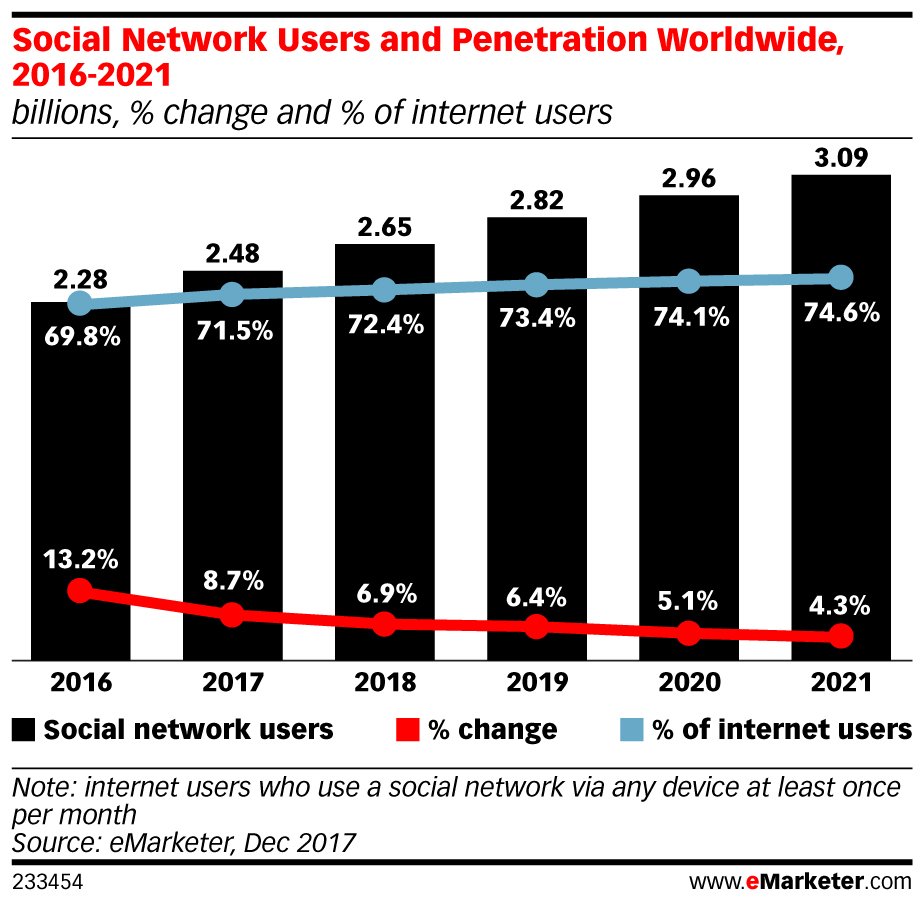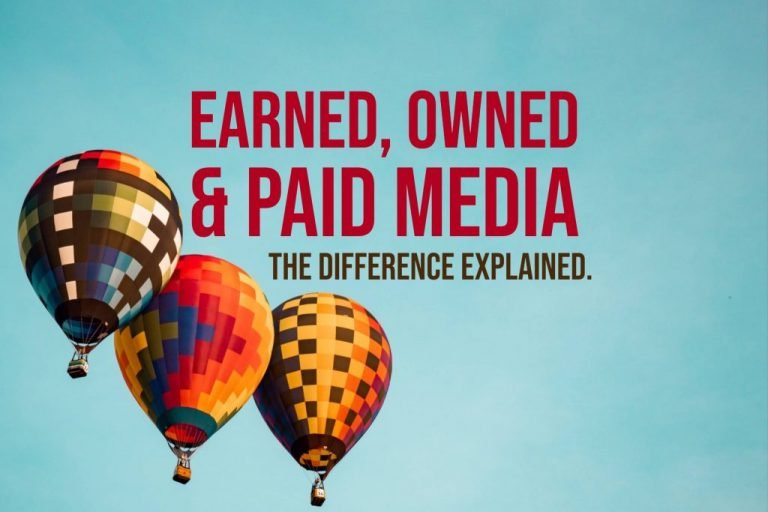What is Social Media Marketing ?
There is actually quite a bit of confusion about what social media marketing is. For example, some people think that social media is platforms, such as Facebook, Instagram, or Twitter. But social media goes well beyond specific platforms. In this blog I’ll describe what social media is and what it is not. A teenager sends a snapchat message to a friend with ‘face in beard’ filter. A fashion blogger with over 10,000 followers posts an outfit of the day on instagram. These are the examples of how people communicate in our digitally enabled world.
The goals of communication vary :
- People could be strengthning social bonds ,
- Creating community around shared interest, or
- Sharing information and ideas.
But all of these social interactions are digitally enabled.
With the the growth of new technology, extensive Wi-Fi coverage, and rising adoption of smartphones, social media usage continues to increase, with almost a third of the world’s population accessing a social media network at least once during the month.

Social media users include people all over the world and of all ages and backgrounds. Social media is not just for young people anymore, with increasing adoption by users who are age 35 or older. Companies are taking advantage of these trends and shifting more money into social media marketing. For example, according to a survey of chief marketing officers conducted in august 2017, spending on social media as a proportion of the total marketing budget was expected to increase from current levels of about 10% to close to 20% of the total budget over the next five years. The increase varies by sector, with higher increases projected for consumer products companies relative to companies in the business-to-business product and service sectors.

So what are these companies spending this money on?
what does it mean to invest in social media marketing?
Social media marketing is the use of social interactions to provide value to companies and brands. Inherent in this defination is the idea that social media is not a platform or specific technology. Instead, social media is about understanding how various digital technologies facilitate interactions between consumers and other consumers and between consumers and companies. Because technology is constantly changing, we focus on the principles uderlying these social interactions and the value that such interactions can create for consumers and brands.
To determine if a marketer’s action is considered social media marketing, ask yourself the following questions:
Who is communicating?
Are the consumers communicating with each other?
Are consumers communicating with the brand?
Is brand communicating with consumers?
(Note that communication is broadly construed and would include forms of feedback such as likes on facebook or instagram.)
Is there a conversation?
That is, the communication must go in more than one direction. For example, a brand sharing an advertisement via social media platform would not necessarily be considered social media marketing. That ad becomes social if it engages the audience in conversation and/or sharing.
To summerize, social media is not technology or a specific platform. Social media marketing involves the use of communication channels to help brands and organisations to better understand their consumers and competitors, to provide superior consumer service and enhance the consumption experience, to capitalize on positive brand conversations, and to co-create brand awareness, meaning and products with the consumer.

